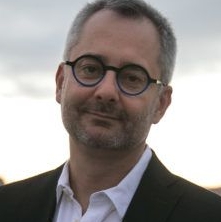Albert-László Barabási
He began his university studies between 1986 and 1989 at the University of Bucharest, majoring in physics and engineering, and then completed his studies at ELTE, majoring in physics; he graduated in 1991 with a degree in fractal theory.
Between 1989 and 1992, he was an assistant professor and then a research assistant at Boston University; he earned his PhD there in 1994.
Between 1992 and 1994, he worked at the IBM TJ Watson Research Institute, where he became more closely involved with his later field of expertise: network theory.
From 1994 to 2000, he was an assistant professor and then a full professor at the University of Notre Dame in Indiana. Since 2000, he has been a professor at the Dana Farber Cancer Institute at Harvard University. He has also been a visiting professor at the Central European University (CEU) in Budapest.
Since 2007, he has been the director of the Center for Complex Network Research (CCNR) at Northeastern University.
His achievements in the field of complex network theory are world-renowned. His work has led to the study of scale-independent networks becoming an important research area; these networks with an uneven distribution of connections can be found in a wide variety of fields in the natural sciences and sociology. He determined the “size” of the web, according to which we are on average 19 clicks away from any currently available Internet page. His research also confirms one of the popular theses of communication theory, the global village theory, and the law of six-step distance. He developed the Barabási-Albert model of the development of complex networks together with his student Réka Albert.
Member of the American Physical Society since 2003; external member of the Hungarian Academy of Sciences since 2004; member of the Academia Europaea since 2007; elected to the US National Academy of Sciences (NAS) in 2024.
His awards: Nívó Prize (Fizikai Szemle, 1999); FEBS Anniversary Prize for Systems and Biology (Federation of European Biochemical Societies, 2005); Neumann Plaque and Diploma (NJSZT, 2006); Moholy-Nagy Prize (Moholy-Nagy University of Art, 2018); János Bolyai Creative Award (2019) – in addition to these, he has received numerous international recognitions (see biography).
- Wikipedia
- website
- biography (English)
- publications (English)
- Entangled (University of Omniscience, 2005)
- Flashes (University of Omniscience, 2011.)
- Performance is limited, but success is unlimited (interview, 2018)
- Success of Hungarian network researchers (2018)
- I'm really looking forward to the return of creative boredom (interview, 2019)
- In 2001, he received the Harghita County Award.
Created: 2019.04.17. 11:22
Last modified: 2025.03.14. 11:35

